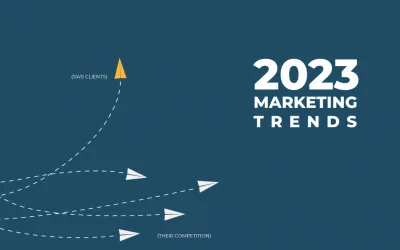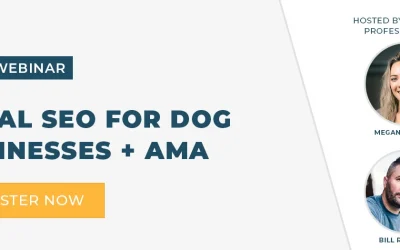Getting Images Found in Search for Photography Websites
This video covers the basics of getting images found in Google image search. The target audience is most certainly photographers and creatives. This practice is also good for any other organization or individual that would benefit from having their images seen organically.
Video Transcript
Welcome everybody to another video. Today we’re going to be talking about optimizing your images on your website so you can get found not only in Google search but also Google image search.
So why would you want to get found inside of Google image search? Google recently tweeted out and it had a video that talked about all the different things you can do to optimize your images and we’re going to take that a step further and we’re going to talk about how you can actually do that and specifically as it relates to a photographer or photographers website because those are the ones that really can capitalize on getting your images found in image search. It’s one of the really important things to consider when optimizing your images is why somebody would want to get your images found in image search. You’re going to be looking at very specific queries where someone is going to Google the phrase and instead of looking through the actual normal web results, go to the image section of Google search to see if they could find inspiration for different things.
So what are some of those queries that would really resonate well with getting your images found in image search? Some of those queries could be wedding photo shoot ideas or engagement photo shoot ideas, where to shoot the best engagement photos in Charlotte. Tons of different things that you can really capitalize on for people that are going to Google and trying to get inspiration for their next shoot. Maybe they see some of your images in this section and think, I would like to hire this person to do my photo shoot while they’re researching in that very important phase of the buying cycle. A couple of things to also consider. One really big important thing to also consider is, is your website relevant and useful? Are you providing this good information to your clients or to potential clients to showcase all of these great shoot locations? Are you a photographer that has been around Charlotte, North Carolina your entire life and known all of the great places to shoot?
All the locations, the different angles, the different ways light come in. Those are things that are really important to share on your website and if you associate the images that you’ve taken or you’ve captured, you’ll be able to really help with these optimization tips. So the first use high quality images. I’m talking to photographers specifically so I’m assuming all of your images are very high quality, high resolution. This is not talking about just resolution. I’m talking about performance. Make sure that your images are optimized well for your website. Make sure that they are not huge in file size. You don’t want to upload a two and a half megabyte photo to your website that will slow your performance down. Google won’t want to crawl it. It’s bad for user experience and Google will not position your website if you have a bad experience for your users.
Next up, relevant and visible placement. Are you displaying the images on your website in a great gallery? Do you have them easily accessible? Are they at the top of the page and are they easily to crawl from a user’s perspective as well as Google’s perspective? The next idea is descriptive page titles. This is where you associate the page on your website with the photos and my recommendation here is if you have a ton of different wedding photos or you’re a wedding photographer or engagement photographer, go ahead and take a lot of your great locations or group your location photos together from all of the different weddings and create one page on your website that just talks about the great locations in and around Charlotte you’ve shot. That way, somebody that’s looking for inspiration or looking for great locations, will find your images and find your website. And if you describe that page effectively, Google when they hit your website will understand that all of the images on that page are associated with that topic.
Also, really important is the ALT text on your images. Now, ALT text is a piece of code that goes on your image that Google reads to understand what that image is about. Google doesn’t have the ability to crawl and see an image. They rely on code to decipher what each image contains. Every single one of the big CMSs out there, the content management systems like WordPress or Weebly or Wix or Squarespace all give you the ability to edit and add ALT text to your images. So when you’re uploading images, make sure you’re adding ALT text that is very descriptive about what that image is about. Or go back through your website and make sure all of your images have ALT texts that describe the image. Include things like the location, the size of the wedding, what type of photo it is, what time of day it was taken.
Important things in your ALT text can really help Google understand what your images about. Warning though, don’t over optimize it. Don’t put 100 or 50 or even 20 words in your ALT text. Make sure it’s very clear, very concise. Also, make sure that your images have very descriptive file names. Your file name is really important for Google to understand what the image is and what the images is called. So if you are using things like photo one or photo two or wedding one or wedding two, it’s really not good for Google to understand what that image is about. And lastly, caption your images. Make sure they have a great caption because Google will associate the photo with the caption and give you a better understanding or have a better understanding about what that image is, what’s on it and what it’s focused on. If you have any feedback, I’d love to hear it. Leave your comments below if you have any success from this or any questions. Also, leave that feedback. I’d love to hear from the folks that are optimizing and happy optimizing your website.




